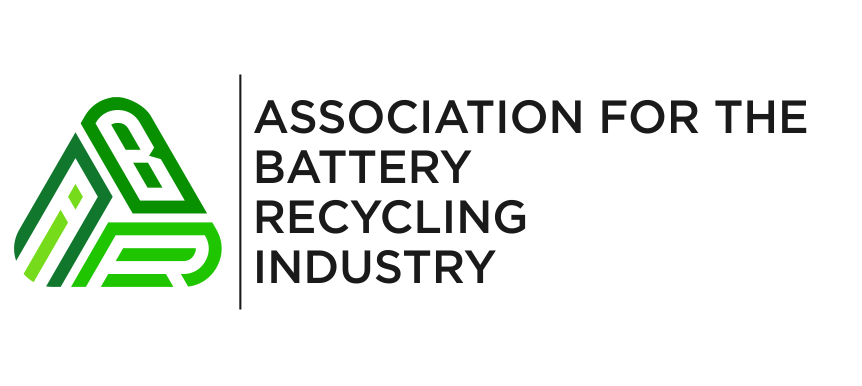5 September 2023
1. ABRI SUMMIT A PLATFORM FOR ADVOCACY TO ENSURE INDUSTRY CAN GROW AND THRIVE
ABRI’s inaugural Australian Battery Manufacturing and Recycling Summit was attended by over 110 industry leaders from companies across the entire battery value chain, the automotive sector, investors, energy and recycling technology researchers and government officials. The key message from the Summit – battery recycling industry could play a major role in the manufacturing sector in the Australian economy and across the South Pacific with more government support for growing commercial opportunities, cutting red tape, backing exportable technology and the development of sovereign capabilities.
It was great to get CEO feedback such as:
“Thanks also for an excellent summit. I think it is the best, most-focussed event I’ve attended.”
“I have been to a lot of conferences and honestly as a delegate it was among the best I have attended.”
Using the conference as a platform, ABRI will be advocating strongly in the coming months with decision-makers to ensure the industry can grow and thrive into the future creating opportunities for Australian business, exports and intellectual property. The Summit media release highlights that the battery recycling industry could play a major role in the manufacturing sector in the Australian economy and across the South Pacific with more government support for growing commercial opportunities, cutting red tape, backing exportable technology and the development of sovereign capabilities.
This link provides access to the Summit materials – speaker slides, research publications and information on sponsor capabilities. Further materials will be uploaded over the coming week and we hope this is a great reference material site for you. Thanks to LCC Asia Pacific, the lead partner in organising the Summit, for developing this information portal.
Thanks again to our sponsors:
Battery Stewardship Council & B-cycle
Lithium Australia & Envirostream
Enirgi Power Storage Recycling
Battery Pollution Technologies
2. FCAI (FEDERAL CHAMBER OF AUTOMOTIVE INDUSTRIES) RECYCLING OF TRACTION BATTERIES CODE OF PRACTICE
Did you know that FCAI members have an EV battery recycling code of practice?
This Code was released in July 2021 and covers hybrid, plugin hybrid, battery electric and fuel cell vehicles. It notes that FCAI members will have suitable systems in place to monitor the use, capture, return, refurbishment/re-use or recycling/disposal of traction batteries from vehicles that they import.
The Federal Chamber of Automotive Industries (FCAI) is the peak Australian industry organisation representing the importers and distributors of over 99% of light duty passenger vehicles and light commercial vehicles up to 3.5t Gross Vehicle Mass (GVM) and motorcycles sold into the Australia market.
3. ABRI SUBMISSIONS TO GOVERNMENT CONSULTATION – ADG 8 + E-WASTE/PV/BATTERY STORAGE STEWARDSHIP
Comprehensive Review of the Australian Dangerous Goods Code (ADGC) – Preparation for ADG 8
The National Transport Commission is undertaking a major review of the ADGC and discussion on key policy issues. The project is scheduled to result in presentation of a proposed ADG 8 to Infrastructure and Transport Ministers in late 2024.
ABRI’s submission on fire extinguishers and safety equipment highlighted the need for fit for purpose equipment which supported safety of transport operators.
ADG8: Drafts of two of the proposed sections in the new ADG8 are available for review at the above link. These are Part 2 Classifications and Part 5 Consignment Procedures. ABRI will engage with members to discuss options for supporting safe and sustainable used lithium battery transport and support for used lead acid battery sector to maintain special provisions.
Proposal to extend stewardship to solar photovoltaic and energy storage batteries
The Department for Climate Change, Energy, the Environment and Water (DCCEEW) has completed consultation on expanding the NTCRS, developing a stewardship scheme for solar PV and potentially including energy storage batteries.
ABRI’s submission noted to inform the least cost and most efficient and effective model for producer responsibility, ABRI considers the preferred course of action is the following:
Establishing an information sharing and data framework on battery chemistry, state of health and disassembly to support safe and sustainable recycling, reuse and repurposing, such as the European battery passport.
State based strategic planning for collection and aggregation sites to minimise transport costs and support safe collection.
Streamlined planning and environmental approvals for used battery collection and aggregation sites.
Consistent safe storage, handling and transport guidance for collection, aggregation and recycling sites across Australia.
Development of robust standards and a consumer protection framework to support safe battery repurposing.
Mapping of the logistics chain to understand what challenges need to be addressed and opportunities are arising and therefore assess producer responsibility options.
The submission also noted that lead acid batteries should remain exempt from any stewardship scheme, given the excellent example they set as a circular economy product.
4. WOULD YOU LIKE TO BE PART OF AN ABRI WORKING GROUP TO INFORM THE DEVELOPMENT OF LITHIUM BATTERY TRANSPORT - CHALLENGES AND SOLUTIONS?
ABRI CEO, Katharine Hole, is proposing to establish an ABRI working group on lithium battery transport to:
inform advocacy in the development of ADG 8
consider safe and sustainable approaches to the growing challenges of lithium battery transport
inform a workshop with Australian Battery Industry Association (ABIA) members on transportation of end of life lithium batteries
Please email Katharine if you would like to be part of this working group.
